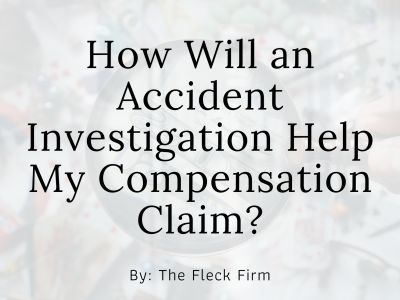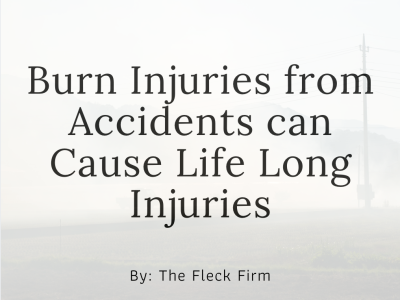It may be something you never thought to prepare for, but vehicle fires actually account for 20 percent of all fires reported to fire departments. This equals thousands of vehicle fires on highways across the country every year. Although the number of car fires has decreased since the 70s and 80s, this is still a serious enough issue that it’s important to know what to do if it happens to you.
Why Do Cars Catch Fire?
In movies and TV shows, cars tend to go up in flames after a collision. Although crashes are a cause, there are other reasons that are more common and the result is often less dramatic.
Other attorneys take contingent fees of 33% to 50% of your settlement.
We want you to keep more of your money.
Our contingent fee is only 30% on cases settled prior to filing suit.
Collision
Most modern vehicles use a design that protects the areas of the car that are the most vulnerable to fire in the case of a collision. These crumple zones protect the engine, gas tank, and battery. However, it is impossible to eliminate the risk entirely, especially in the case you drive a small car and it collides with a larger vehicle.
Fuel or Fluid Leak
The most dangerous type of fire is one caused by a fuel leak. Due to the extremely-flammable nature of gasoline, just a small spark can instantly cause a fire. Other fluids that could also cause a fire if they leak include engine oil, brake fluid, transmission fluid, and power-steering fluid. For instance, a crash could cause any one of these to leak.
Electrical System Failure
Faulty electrical wiring or a bad battery in your electrical system can cause a fire almost anywhere in the interior of your car. The electrical system starts in the hood and passes through the doors and under the carpets. If you have powered seats, these will also be connected to your electrical system.
Overheated Parts
Certain parts of your car can overheat and, if something nearby could burn, this could start a fire.
One such place is the catalytic converter, as the exhaust system is the area of the care that becomes the hottest of all. The catalytic converter can damage parts near it if it keeps overheating, which could cause them to ignite.
Another part of the car susceptible to overheating is the engine. Although engines overheat all the time without igniting, there is always the risk that other fluids in the car will become too hot as well. If oil or coolant starts leaking, it could catch fire somewhere in the engine.
Free Consultation
Contact us today for a free consultation to see how we can put our years of experience to work for you.
Poor Design
Vehicles with a poor design have an increased risk of igniting if something else goes wrong. This includes if you suffer a collision.
Electric Battery
Electric, and even hybrid, cars are much safer than gasoline cars, but there is still a small risk that they could suffer a fire. This can occur if the lithium-ion battery suffers damage, such as due to penetration of the battery cell wall or exposure to extreme heat.
How to Avoid a Vehicle Fire
Usually, there are some warning signs before your car catches fire. For instance, the fuse may blow right after you’ve changed it or the exhaust system may be much louder than normal. You should also look out for damaged wiring (including with exposed metal), loose hoses, and extreme changes to the fuel or oil levels and to engine temperature. In addition, after an oil change, make sure there are no oil spills under the hood. Finally, make sure there are never any fluid leaks on the ground where your car was parked.
If you ever notice something unusual, receive professional maintenance to prevent an accident. Plus, make sure you stick to a regular maintenance schedule to prevent any problems that would otherwise go unnoticed.
Steps to Take in the Case of a Vehicle Fire
The moment you notice that your car is on fire — you may see flames or you may just smell smoke — act fast. Pull over to somewhere it’s safe to stop and turn off the ignition. All the occupants of your car need to get out immediately, without taking time to gather personal belongings. Move to stand somewhere safe, keeping at least 100 feet from your car to avoid flames and fumes. Ask any witnesses to keep their distance as well and, if possible, alert traffic to stay away.
Call 911 and wait for the firefighters to arrive. The fire may start quite small and you may be concerned that it’s taking too long for the emergency services to arrive, resulting in irreparable damage to your car and any items inside. Nonetheless, you should never try to put out the fire yourself. In fact, even going back to open doors or check under the hood can make the fire much worse by increasing oxygen supply to the flames.
Claims After a Car Fire
Your vehicle will certainly have suffered some damage after the fire. Even if the damage seems superficial, though, you should not attempt to drive the car again until you have received an inspection from your insurance provider. The company will also determine repair costs at this time. Unfortunately, if the damage is severe, these may be higher than the value of your vehicle. In the case the insurance company considers your car a total loss, you will need to file a claim.
In addition to vehicular damage, you may have suffered some injuries, particularly if you were unable to leave the car soon after the fire started. If you or any of your passengers suffered burns, it’s likely you will be experiencing pain, you may have medical bills, and you may need to take time off work. If you believe that you were not at fault for the car fire, you may be able to file a personal injury claim in Kentucky.
To receive the maximum benefits you are entitled to, it’s important to work with an attorney who specializes in personal injury claims after a car fire. Contact The Fleck Firm for a free consultation.








